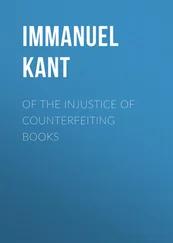In this enlarged signification, then, shall I employ the word absolute, in opposition to that which is valid only in some particular respect; for the latter is restricted by conditions, the former is valid without any restriction whatever.
Now the transcendental conception of reason has for its object nothing else than absolute totality in the synthesis of conditions and does not rest satisfied till it has attained to the absolutely, that is, in all respects and relations, unconditioned. For pure reason leaves to the understanding everything that immediately relates to the object of intuition or rather to their synthesis in imagination. The former restricts itself to the absolute totality in the employment of the conceptions of the understanding and aims at carrying out the synthetical unity which is cogitated in the category, even to the unconditioned. This unity may hence be called the rational unity of phenomena, as the other, which the category expresses, may be termed the unity of the understanding. Reason, therefore, has an immediate relation to the use of the understanding, not indeed in so far as the latter contains the ground of possible experience (for the conception of the absolute totality of conditions is not a conception that can be employed in experience, because no experience is unconditioned), but solely for the purpose of directing it to a certain unity, of which the understanding has no conception, and the aim of which is to collect into an absolute whole all acts of the understanding. Hence the objective employment of the pure conceptions of reason is always transcendent, while that of the pure conceptions of the understanding must, according to their nature, be always immanent, inasmuch as they are limited to possible experience.
I understand by idea a necessary conception of reason, to which no corresponding object can be discovered in the world of sense. Accordingly, the pure conceptions of reason at present under consideration are transcendental ideas. They are conceptions of pure reason, for they regard all empirical cognition as determined by means of an absolute totality of conditions. They are not mere fictions, but natural and necessary products of reason, and have hence a necessary relation to the whole sphere of the exercise of the understanding. And, finally, they are transcendent, and overstep the limits of all experiences, in which, consequently, no object can ever be presented that would be perfectly adequate to a transcendental idea. When we use the word idea, we say, as regards its object (an object of the pure understanding), a great deal, but as regards its subject (that is, in respect of its reality under conditions of experience), exceedingly little, because the idea, as the conception of a maximum, can never be completely and adequately presented in concreto. Now, as in the merely speculative employment of reason the latter is properly the sole aim, and as in this case the approximation to a conception, which is never attained in practice, is the same thing as if the conception were non-existent — it is commonly said of the conception of this kind, “it is only an idea.” So we might very well say, “the absolute totality of all phenomena is only an idea,” for, as we never can present an adequate representation of it, it remains for us a problem incapable of solution. On the other hand, as in the practical use of the understanding we have only to do with action and practice according to rules, an idea of pure reason can always be given really in concreto, although only partially, nay, it is the indispensable condition of all practical employment of reason. The practice or execution of the idea is always limited and defective, but nevertheless within indeterminable boundaries, consequently always under the influence of the conception of an absolute perfection. And thus the practical idea is always in the highest degree fruitful, and in relation to real actions indispensably necessary. In the idea, pure reason possesses even causality and the power of producing that which its conception contains. Hence we cannot say of wisdom, in a disparaging way, “it is only an idea.” For, for the very reason that it is the idea of the necessary unity of all possible aims, it must be for all practical exertions and endeavours the primitive condition and rule — a rule which, if not constitutive, is at least limitative.
Now, although we must say of the transcendental conceptions of reason, “they are only ideas,” we must not, on this account, look upon them as superfluous and nugatory. For, although no object can be determined by them, they can be of great utility, unobserved and at the basis of the edifice of the understanding, as the canon for its extended and self-consistent exercise — a canon which, indeed, does not enable it to cognize more in an object than it would cognize by the help of its own conceptions, but which guides it more securely in its cognition. Not to mention that they perhaps render possible a transition from our conceptions of nature and the non-ego to the practical conceptions, and thus produce for even ethical ideas keeping, so to speak, and connection with the speculative cognitions of reason. The explication of all this must be looked for in the sequel.
But setting aside, in conformity with our original purpose, the consideration of the practical ideas, we proceed to contemplate reason in its speculative use alone, nay, in a still more restricted sphere, to wit, in the transcendental use; and here must strike into the same path which we followed in our deduction of the categories. That is to say, we shall consider the logical form of the cognition of reason, that we may see whether reason may not be thereby a source of conceptions which enables us to regard objects in themselves as determined synthetically a priori , in relation to one or other of the functions of reason.
Reason, considered as the faculty of a certain logical form of cognition, is the faculty of conclusion, that is, of mediate judgement — by means of the subsumption of the condition of a possible judgement under the condition of a given judgement. The given judgement is the general rule (major). The subsumption of the condition of another possible judgement under the condition of the rule is the minor. The actual judgement, which enounces the assertion of the rule in the subsumed case, is the conclusion (conclusio). The rule predicates something generally under a certain condition. The condition of the rule is satisfied in some particular case. It follows that what was valid in general under that condition must also be considered as valid in the particular case which satisfies this condition. It is very plain that reason attains to a cognition, by means of acts of the understanding which constitute a series of conditions. When I arrive at the proposition, “All bodies are changeable,” by beginning with the more remote cognition (in which the conception of body does not appear, but which nevertheless contains the condition of that conception), “All compound is changeable,” by proceeding from this to a less remote cognition, which stands under the condition of the former, “Bodies are compound,” and hence to a third, which at length connects for me the remote cognition (changeable) with the one before me, “Consequently, bodies are changeable”— I have arrived at a cognition (conclusion) through a series of conditions (premisses). Now every series, whose exponent (of the categorical or hypothetical judgement) is given, can be continued; consequently the same procedure of reason conducts us to the ratiocinatio polysyllogistica, which is a series of syllogisms, that can be continued either on the side of the conditions (per prosyllogismos) or of the conditioned (per episyllogismos) to an indefinite extent.
But we very soon perceive that the chain or series of prosyllogisms, that is, of deduced cognitions on the side of the grounds or conditions of a given cognition, in other words, the ascending series of syllogisms must have a very different relation to the faculty of reason from that of the descending series, that is, the progressive procedure of reason on the side of the conditioned by means of episyllogisms. For, as in the former case the cognition (conclusio) is given only as conditioned, reason can attain to this cognition only under the presupposition that all the members of the series on the side of the conditions are given (totality in the series of premisses), because only under this supposition is the judgement we may be considering possible a priori ; while on the side of the conditioned or the inferences, only an incomplete and becoming, and not a presupposed or given series, consequently only a potential progression, is cogitated. Hence, when a cognition is contemplated as conditioned, reason is compelled to consider the series of conditions in an ascending line as completed and given in their totality. But if the very same condition is considered at the same time as the condition of other cognitions, which together constitute a series of inferences or consequences in a descending line, reason may preserve a perfect indifference, as to how far this progression may extend a parte posteriori, and whether the totality of this series is possible, because it stands in no need of such a series for the purpose of arriving at the conclusion before it, inasmuch as this conclusion is sufficiently guaranteed and determined on grounds a parte priori. It may be the case, that upon the side of the conditions the series of premisses has a first or highest condition, or it may not possess this, and so be a parte priori unlimited; but it must, nevertheless, contain totality of conditions, even admitting that we never could succeed in completely apprehending it; and the whole series must be unconditionally true, if the conditioned, which is considered as an inference resulting from it, is to be held as true. This is a requirement of reason, which announces its cognition as determined a priori and as necessary, either in itself — and in this case it needs no grounds to rest upon — or, if it is deduced, as a member of a series of grounds, which is itself unconditionally true.
Читать дальше












